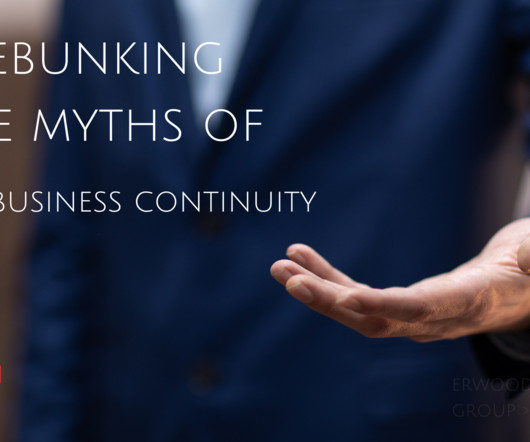An Introduction to FFIEC: BCM’s Gold Standard
MHA Consulting
MARCH 23, 2023
It has greater governance, risk assessment, business impact analysis, planning, testing, and maintenance requirements than any other standard. And its focus on continuous improvement helps ensure that organizations are always prepared to respond to disruptions and minimize their impact.












Let's personalize your content